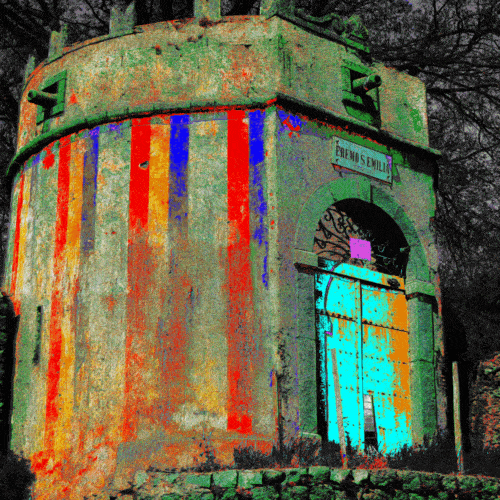Training on Low-cost methods for Art Examination – December / 13-15 / 2016, Costa Rica
Our Training course is aimed to art and archaeology professionals that want to add new technical examination tools to their skills. This course is developed in collaboration with the Chemistry Department, University of Costa Rica.
Researchers from University of Costa Rica ( Chemistry Department ) contacted CHSOS to hear about our work on multispectral imaging and learn about our global approach to studying works of art. The chemists and also the physicists from their Materials Science Center have instrumentation – such as UV-Vis-NIR, Raman and XRF spectroscopy – and would like to discuss with CHSOS their applications for Art and Archaeology in order to examine paintings from Colonial and more recent times but also ceramics and artifacts from their native Indians. They are essentially starting in this field in Costa Rica and asked CHSOS for guidance.
Last time CHSOS was in Latin America was in 2013 for a Training program at Instituto Nacional de Patrimonio Cultural, Ecuador.
As they say in Costa Rica… Pura vida!

Info
Course: Low-cost methods for Art Examination
Seats: max 10 participants.
Dates: December 13-15, 2016
Location: Chemistry Building, University of Costa Rica
Travel: There are two international airports in Costa Rica, one in northern CR close to the Guanacaste Beaches and other near San José and UCR “Campus Rodrigo Facio” the Juan Santamaría International Airport SJO about 20 km from UCR. http://fly2sanjose.com/
Hotel: There are a number of small Hotels and B&B within walking distance. We will stay at Ave del Paraíso, just next to Campus.
Information about visas, vaccines etc. for international visitors to Costa Rica (important for people from other Latin American countries). Click here.
Program
1st Day. Technical Photography
Technical Photography represents a collection of broadband spectral images realized with a modified full spectrum digital camera and different lighting sources and filters. We will practice hands-on shooting and editing for these technical photos:
VIS, Visible
RAK, Raking light Photography
UVF, Ultraviolet Fluorescence Photography
UVR, Ultraviolet Reflected Photography
IR, Infrared Photography
IRT, Infrared Transmitted Photography
IRF, Infrared Fluorescence Photography
IRFC, Infrared False Color Photography
2nd Day. Panoramic Infrared Reflectography, Reflectance Spectroscopy, Reflectance Transformation Imaging
Infrared Reflectography allows to identify underdrawing and pentimenti. We coupled it with the panoramic method in order to acquire infrared reflectograms with a fast and lightwiegth set up.
Reflectance Spectroscopy (RS) shows, for each wavelength, the ratio between the intensity of the reflected light and the incident light, measured with respect to a standard white reference (reflectance). Reflectance spectra provide information useful for the identification of pigments.
Reflectance Transformation Imaging (RTI) is a computational photographic technique and it is used in a number of fields related to art examination and documentation because it provides a virtual and enhanced visualization of an object’s surface.
3rd Day. Multispectral Imaging
Multispectral Imaging (MSI) is used to map and tentatively identify pigments and in paints on works of art. It is also useful to visually enhance old and faded documents. Thanks to the first crowdfunded research in art conservation science, CHSOS has developed an MSI system using 18 bandpass filter and a full spectrum digital camera that covers the 400-920 nm spectral range.
Shooting spectral images.
Splitting spectral images into RGB channels.
Registering spectral images.
Calibrating spectral images.
Spectra reconstruction and mapping.
Registration
Register to the event. You will receive an automatic reply confirming we have received your request and then you will receive our email confirming you have been accepted. You can then proceed to pay your fee to finalize your registration.
Fee
Early bird Fee: 880 €
Early bird registration deadline: September 30th
Fee: 1440 €
Application deadline: November 30th



